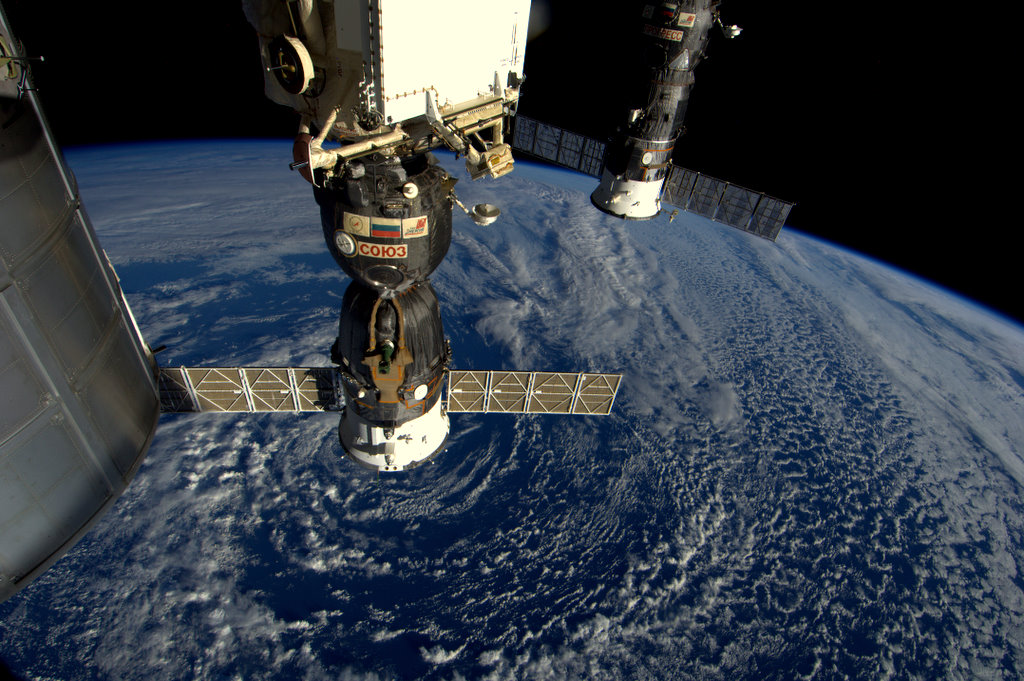All crew interactions with the SSEP Antares and Aquarius II experiments payloads are undertaken on Crew Interaction Days that are defined relative to the day the payloads ARRIVE on Station (A=0) or the day of UNDOCKING (U=0) when the payload is to be transferred to the Soyuz 31S ferry vehicle for return to Earth. There are 8 Crew Interaction Days for the Antares and Aquarius II payloads: A=0, A+1, A+3, A+6, U-21, U-14, U-5, and U-2.
See the scheduled crew interactions for all flight experiments, as defined by the student flight experiment teams, on the SSEP Mission 2 to ISS: Experiment Log page.
All on-orbit operations have now been completed for Crew Interaction Days relative to Arrival, specifically A=0, A+1, A+3, and A+6.
The National Center for Earth and Space Science Education and NanoRacks are now announcing the start of on-orbit operations for Crew Interaction Days relative to Undocking: U-21, U-14, U-5, and U-2. These, however, critically depend on the date Soyuz 31S is scheduled to undock.
There have been a number of conflicting sources regarding the date of undocking, and we asked NanoRacks to assess the situation. At 5:00 pm ET today, we received the following communique from NanoRacks:
NanoRacks is using November 18th as the undock date for Soyuz 31S for all its planning. This is consistent with the most recent information we have from NASA.
NanoRacks has now based its plans for all future Mission 1 and Mission 2 activities on the November 18th Undock date where the activity day is referenced to the Undock date.
Of course if this date is changed in the future, NanoRacks will re-plan activities accordingly.
In light of this new information, student flight experiment teams should plan their ground truth activities to reflect on-orbit operations resuming on U-21, corresponding to SUNDAY, OCTOBER 28, 2012.
SSEP is undertaken by the National Center for Earth and Space Science Education (NCESSE) in partnership with NanoRacks LLC. This on-orbit research opportunity is enabled through NanoRacks LLC, which is working in partnership with NASA under a Space Act Agreement as part of the utilization of the International Space Station as a National Laboratory.
SSEP is the first pre-college STEM (Science, Technology, Engineering, and Math) education program that is both a U.S. national initiative and implemented as an on-orbit commercial space venture.





